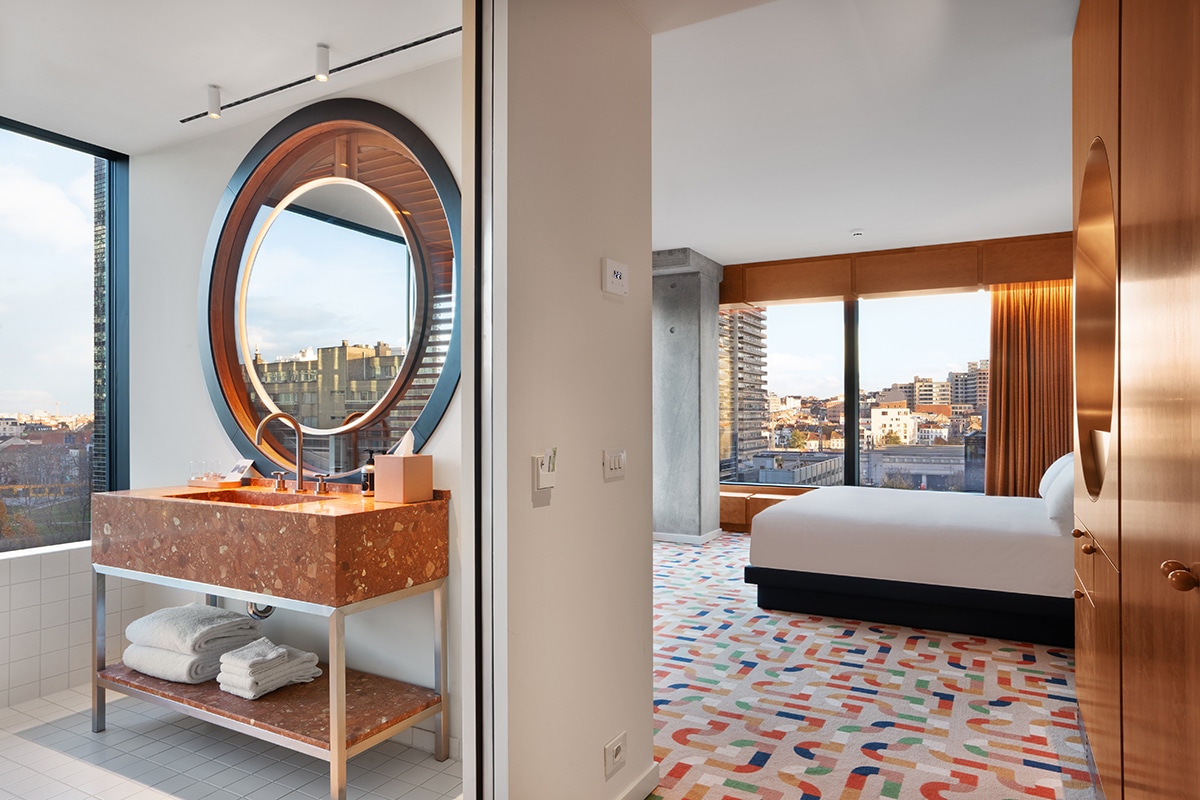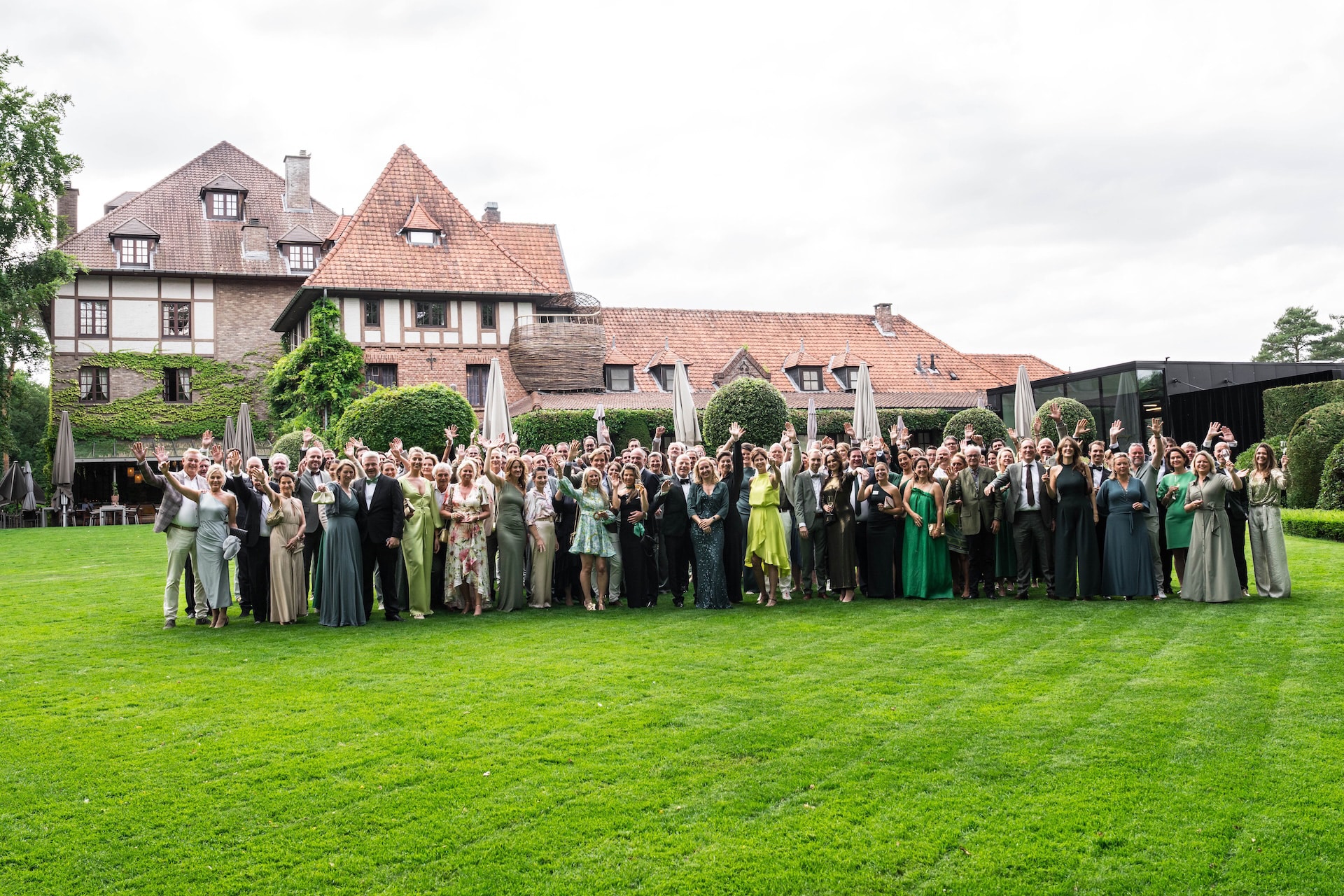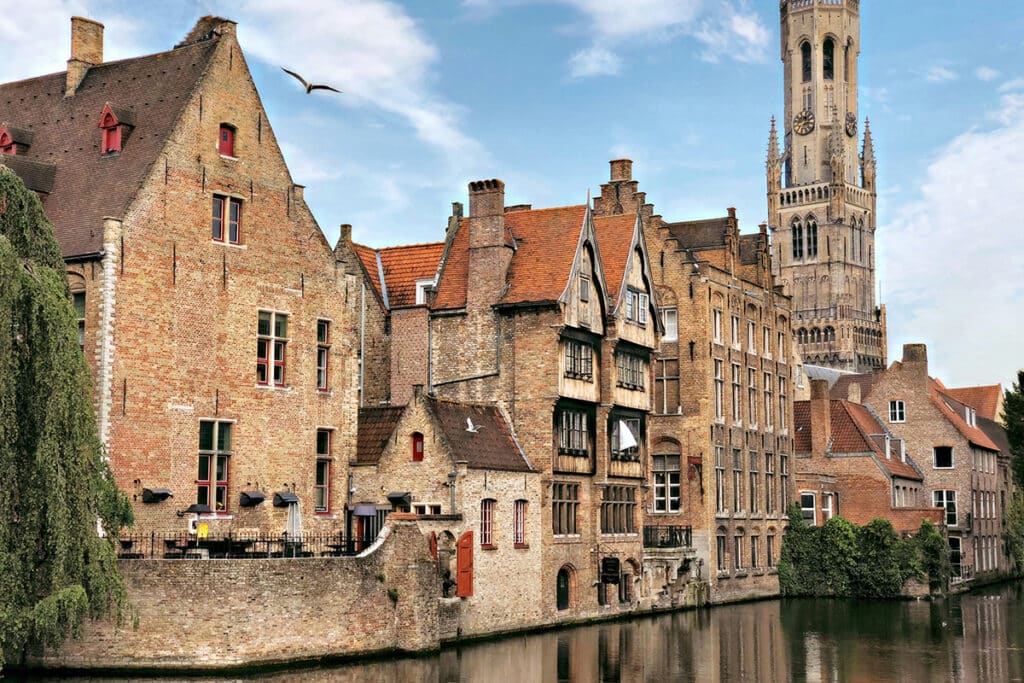
Current hotel climate: diverse situations and challenges
Hotelvak polled the current hotel climate in some of our country's larger cities. We spoke to, among others, Dimitri Thirion of Hotels Regio Brugge vzw, Rudy De Wit of Gent Hotels, Didier Boehlen of the Antwerp Hotel Association (AHA) and Rodolphe Van Weyenbergh of the Brussels Hotel Association (BHA).
Bruges
The Bruges overnight landscape has been dominated by a solid hotel freeze for a number of years, leaving total room capacity largely unchanged. Usually, completely new hotels are only allowed if no other use is possible for a particular (historic) property. And also the expansion of an already existing hotel is usually a wall that is difficult to cross.
Despite this hotel freeze, the accommodation sector continues to face stiff challenges here too. Day tourism, for instance, is still increasing exponentially. Consequently, out of roughly 9 million tourists a year, only 1.6 million stay overnight in Bruges so far. Moreover, there are a lot of busy peak times in spring, summer and autumn where there are often too many people in the same places all the time. From January to March, in turn, there are too many off-peak periods where too few people stay in hotels and museums.
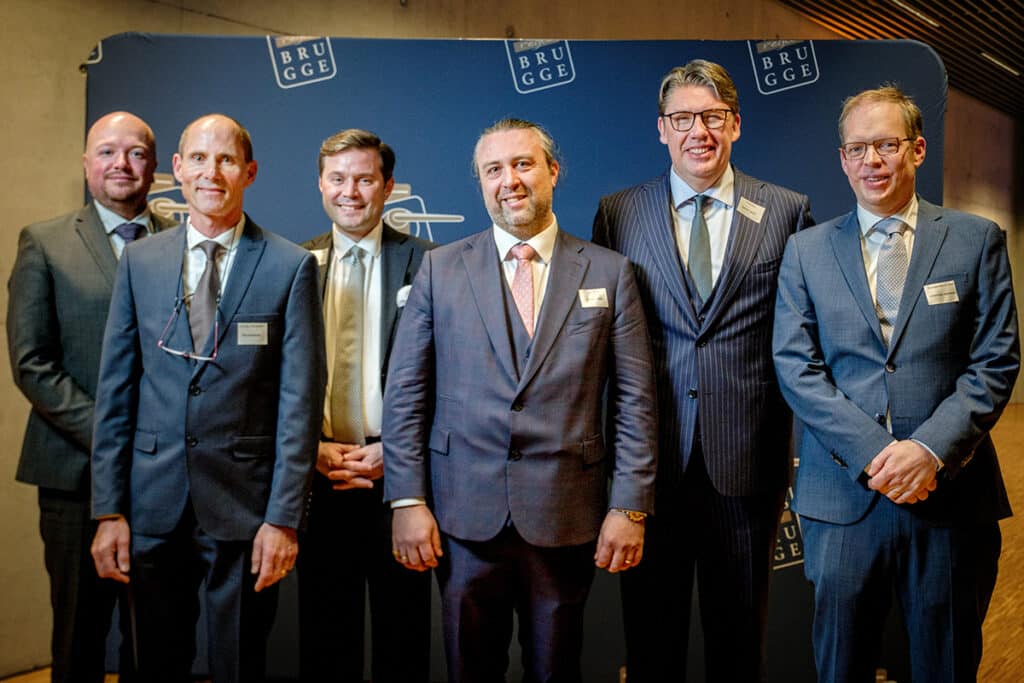
Tourism here therefore needs to be better spread through time and space. During the last Winter Glow, for instance, a trail through lesser-known parts of Bruges was mapped out with quite some success. And it would be even better if this event were organised two weeks longer in January in the near future. Another possibility would be museum nocturnes, with these venues also open to the public in the evening once a month, for example. Another suggestion is that some top exhibitions in Bruges museums would also take place during the winter off-season.
During the summer months, boats on the Reien should then again be allowed to keep going until sunset. This is along the lines of the horse-drawn carriages that already ride around until 10pm. The Belfry Tower should then also be accessible until such hours.
So far, Bruges hotels have an average occupancy rate of 70 per cent. Increasing this could create more room for investment in further improving the quality of the hotel sector. In the areas of business tourism and congresses, among others, a lot of progress can still be made here. A major asset for the near future will be the expansion of the BRUSK exhibition hall plus the adjacent museum quarter.
Ghent
In 2024, Ghent's hotel sector experienced an average occupancy rate of no less than 82 per cent. This figure therefore represents a fairly strong performance. Moreover, the occupancy rate here is much higher than in most other cities in our country.
The hefty economic health of Ghent's hotel sector is mainly the result of the fact that the overnight accommodation sector here consists of a balanced mix, or a 'mix' of leisure tourists and professional visitors.
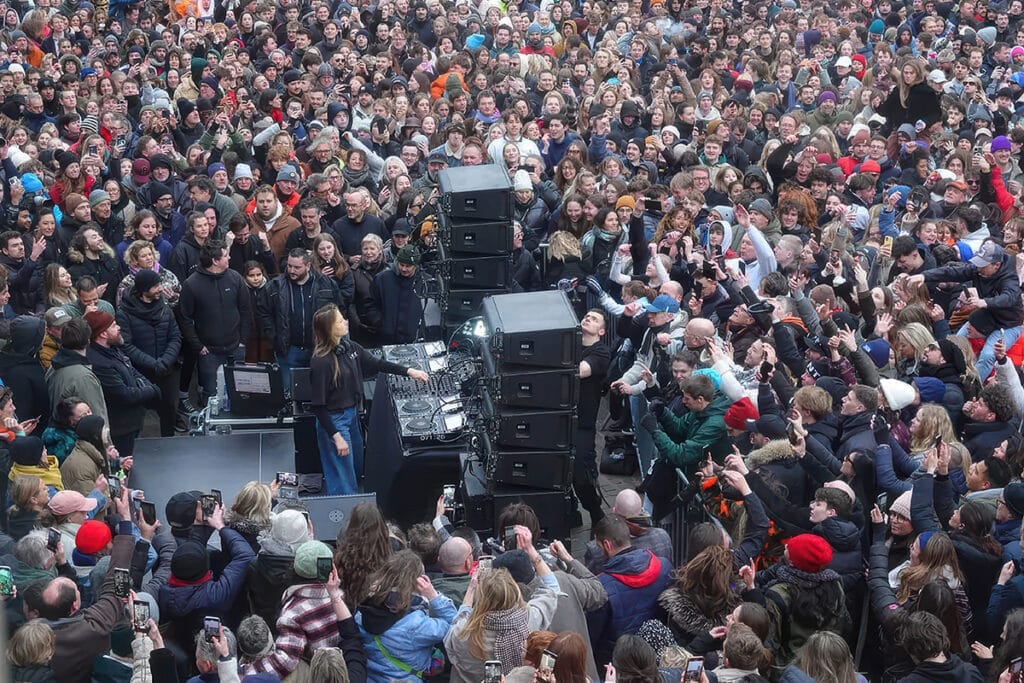
For instance, the companies in the Ghent (sea) port area attract a lot of business tourists who end up in the hotel sector. Another important pillar are the trade fairs organised at regular intervals in Flanders Expo. And all this is further complemented by the big popular events that usually attract a fairly wide audience.
But there is still room for improvement. January-February 2025, for instance, was very calm compared to similar periods in previous years. In response, therefore, the city of Ghent should aim much more, for example, for popular concert and music events during the winter months.
Lately, people have often talked about 'overtourism' in Ghent. However, according to the local hotel association, this term needs to be strongly qualified here. For instance, local shopping tourists and visitors staying overnight in hotels should not be placed under this heading at all.
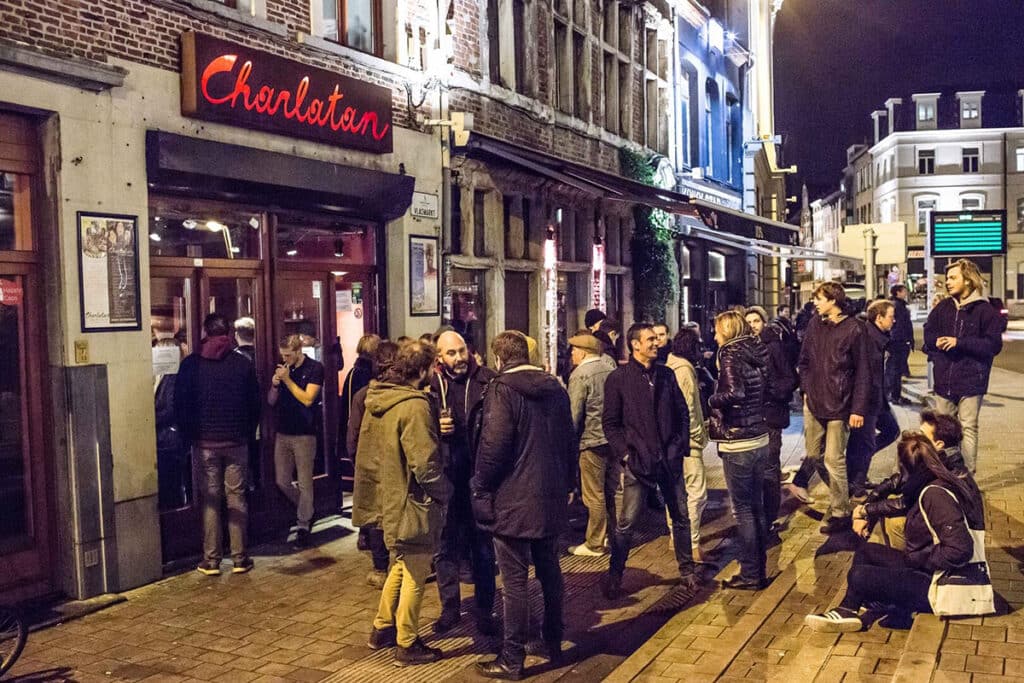
For example, there is often nuisance from groups of cruise tourists and day tourists who usually move through the cityscape in a chaotic manner. The solution is not to chase these day tourists away, but rather to welcome and guide them in a better way.
Thus, the Ghent Hotel Association advocates having these boat and one-day tourists guided mainly by local guides (associations). A high-quality welcome of say half a day to a full day will therefore give these visitors a chance to sample some of the important monuments, museums and catering establishments that are so typical of this city on the Leie and Scheldt rivers. And such an approach could also create quite a few repeat visits, with cruise tourists thus encouraged to return to Ghent later under their own steam ... which in turn becomes interesting for the hotel sector.
Antwerp
The Antwerp hotel market has experienced unusually strong growth in the number of available rooms over the past five to six years, with this supply increasing by no less than 50 per cent, or a jump from roughly 4,300 to almost 7,000 units. So far, all those rooms are generally well-filled during the weekend, but on weekdays there are not enough visitors for the time being.
In any case, for several years now, the AHA has not been advocating a hotel freeze, but rather encouraging new hotels only if they add value to the city. Fine examples are the fairly recent opening of a branch of the German hotel group Motel One and the Mariott Group's Moxy Hotel at 't Zuid. So please especially hotels that "fill the market". With a deliberately pursued balance between budget, mid-range and luxury hotels.
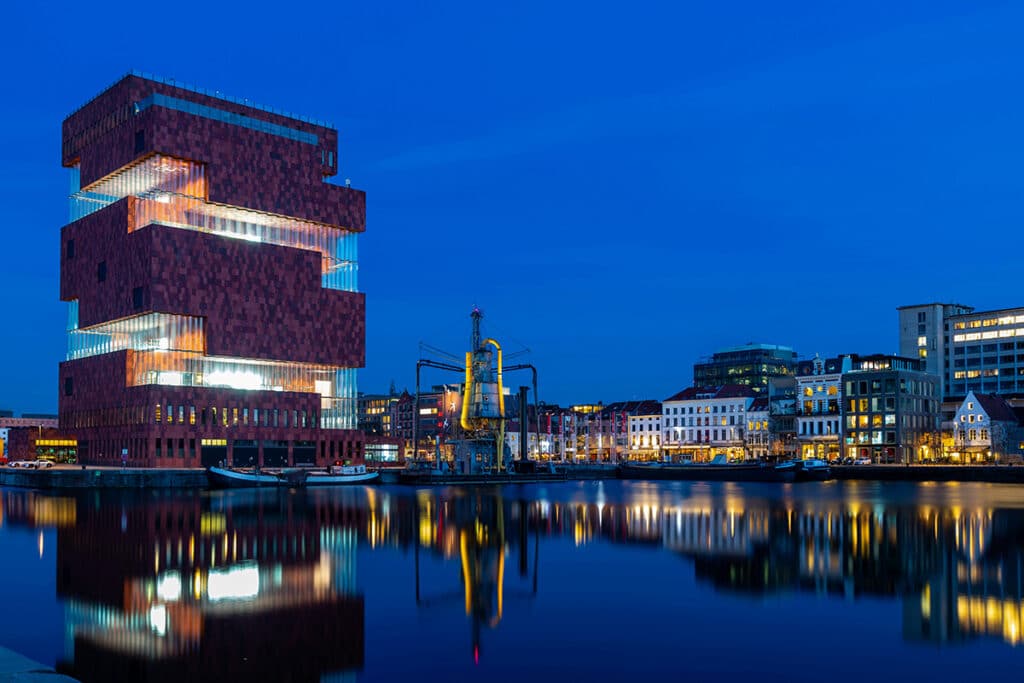
In 2024, the average occupancy rate of Antwerp hotels was 68.8 per cent. In 2019, it was 73 per cent. "Of course, this has to take into account the substantial room growth during that period, which means we are currently in oversupply. In addition, the number of business tourists - who mainly turn up on weekdays - is not yet at the same level of the years shortly before the pandemic."
In response, Antwerp's hotel sector wants to target (trade fair) and conference tourism in particular. A nice asset here is the fairly recent renovation and expansion of the Zoo's auditorium complex close to Central Station. But in order to develop into a fully-fledged (trade) exhibition and conference destination, the Zoo's capacity is gradually being expanded with an additional auditorium, plus new exhibition and conference halls in Antwerp Expo.
Finally, Antwerp could even better appear as its own brand on the leisure market, more specifically as an affordable quality destination, with a current average room rate of 120 euro. But promotion in the direction of distant intercontinental destinations should also be developed more strongly. Americans, for instance, come to Europe for longer than one week. "We should therefore be able to offer them an attractive offer where they can stay in several Belgian cities."
Brussels
The BHA sets a positive outlook for the year 2024, but warns of the competitiveness challenges the sector may face.
This association welcomed the maintenance of the recovery trend that was again established during that year. A clear sign of the gradual normalisation of hotel visitation rates in our capital after the very difficult years between 2020 and 2023. But vigilance remains necessary, as the profitability and competitiveness of this sector thus remain a challenge.
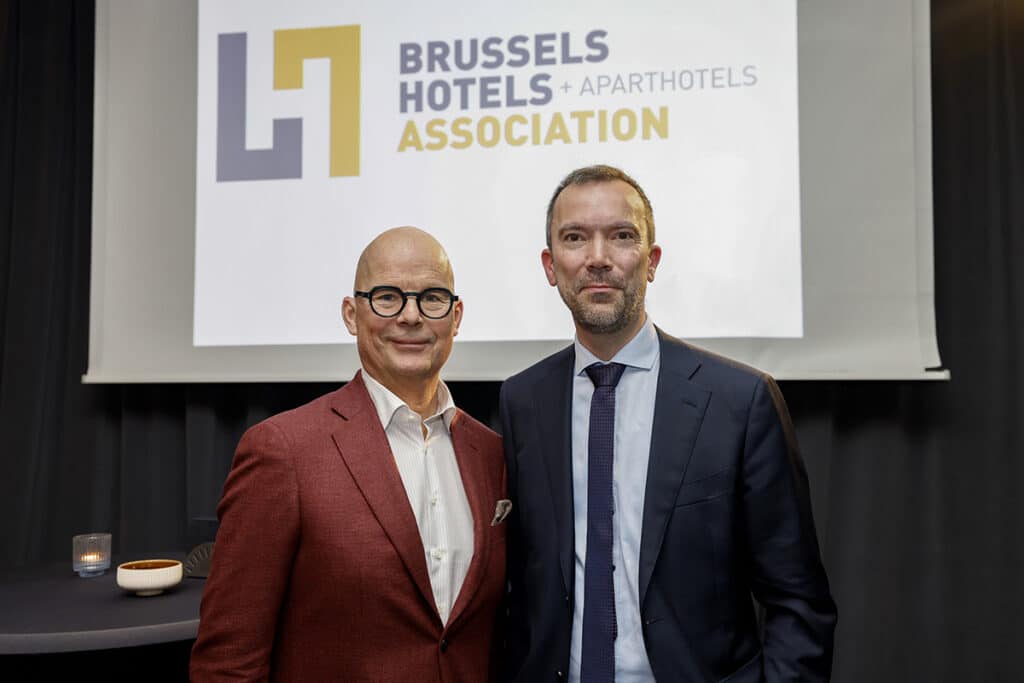
Indeed, results remain moderate in relation to the year 2019 (i.e. just before the pandemic) and even lower than during this reference year in terms of occupancy rate - which is (still) one of the tools for achieving decent profitability in this sector. In 2024, hotels achieved an average occupancy rate of 72.1 per cent in the Brussels Region - or an increase of 2.2 percentage points compared to 2023 - but this still does not represent a full return to normal compared to the reference year 2019 (minus 3.4 percentage points). "The trend is therefore positive, and this despite the fact that the desired occupancy rate of 80 per cent - considered a real equilibrium point for the sector - remains (far) away for the time being."
Furthermore, another indicator of the economic performance of hotels in Brussels, specifically the 'RevPar' or revenue per available room, evolved by 1.1 per cent against 2023 and by 16 per cent relative to 2019, which is still lower than inflation. The increase in the hotels' business rate is (still) insufficient in relation to the increases in energy costs and labour costs in the hospitality industry during the same period.
The BHA sees this as a signal that Brussels' competitiveness remains difficult in the European market, and that the key to returning to normality depends mainly on the hoped-for increase in the volume of economic activity of the city-region and its hotels. The unfair competition from illegal holiday accommodation - which occupies about 25 per cent of the overnight accommodation market - also weighs very heavily on the hotel sector.
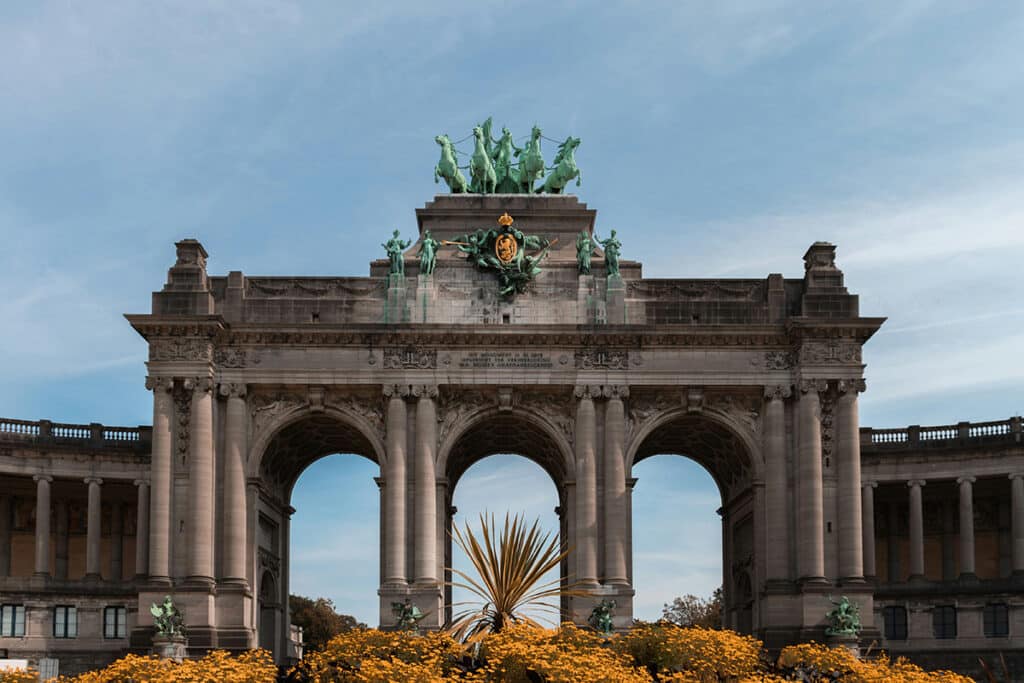
The competitiveness of the hotel sector, which is a measure of the tourism and accommodation dynamics of our capital city, therefore remains a major challenge. It is therefore more than necessary to continue the efforts made so far - to rejoin past growth. In this sense, the BHA has launched an appeal to the Brussels regional government (under construction) and the federal government. "It is vital to support this dynamic, plus the presence of an economic and fiscal legal framework favourable to maintaining competitiveness, a regulation addressing unfair competition from holiday accommodation and, finally, a real common strategy: with calendar, facilities (such as the project for a large convention centre at the Heyzel) and communication - and this in order to generate positive results for the whole country."
